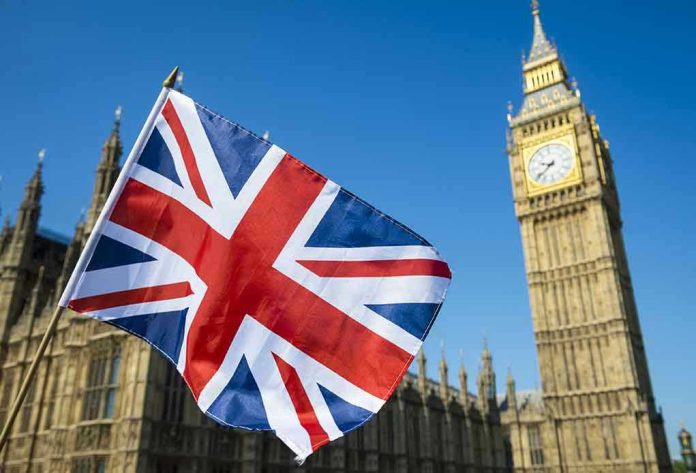
America strengthens its energy independence and global influence as President Trump secures landmark nuclear power agreements with the UK—directly countering foreign reliance and advancing AI-driven innovation.
Story Highlights
- Trump’s state visit to the UK results in major nuclear power deals, deepening strategic U.S.-UK ties.
- Agreements focus on building new nuclear plants, reducing UK dependence on Russian nuclear materials, and powering AI infrastructure.
- U.S. nuclear industry and workforce stand to benefit from job creation and advanced technology partnerships.
- Deal underscores renewed commitment to energy security, traditional alliances, and American leadership against globalist energy threats.
Trump’s Nuclear Agreements: Renewing American Leadership and Security
During his state visit to the United Kingdom, President Trump finalized a series of nuclear energy agreements that not only reinforce the U.S.-UK special relationship but also send a clear message about American priorities. These pacts aim to construct new nuclear plants in the UK, reduce the country’s reliance on potentially hostile foreign suppliers—specifically Russian nuclear materials—and advance critical AI capabilities powered by secure, stable energy. This strategic move reflects a broader push to reclaim energy independence and confront the failures of past globalist policies that left Western democracies vulnerable to adversarial influence.
The agreements are rooted in decades of U.S.-UK nuclear cooperation, dating back to the 1950s Mutual Defense Agreement. In recent years, the urgency for energy security has grown; post-Brexit Britain needed reliable partners, while growing Russian influence in European energy markets exposed the dangers of dependency. By targeting these vulnerabilities, the new pacts directly address conservative concerns over foreign entanglements and highlight the importance of strong bilateral alliances built on shared values and mutual benefit.
Key Provisions: Technology, Security, and American Jobs
Central to the agreements is the joint development of next-generation nuclear facilities, with major industry players like Westinghouse, GE Hitachi, and Rolls-Royce positioned for expanded roles. These projects will create jobs on both sides of the Atlantic and fuel economic growth, aligning with President Trump’s commitment to reindustrialize America and prioritize high-paying skilled trade opportunities for American workers. The inclusion of AI integration signals a forward-looking approach, ensuring that nuclear energy infrastructure supports cutting-edge applications while maintaining rigorous safety and operational standards.
Reducing UK dependence on Russian nuclear materials is a strategic win for Western security. By providing reliable American technology and resources, the U.S. not only strengthens a trusted ally but also diminishes the leverage of hostile regimes. This approach contrasts sharply with previous administrations’ globalist tendencies, reinforcing the value of national sovereignty and secure supply chains—principles that resonate deeply with conservatives concerned about constitutional integrity and government overreach.
Broader Implications: Conservative Values and Global Impact
The economic and political impacts of these agreements are substantial. American industry stands to benefit from increased demand, while local communities near new plant sites in the UK will see job growth and investment. Geopolitically, these moves could shift the balance of energy power in Europe, reducing Russian influence and bolstering Western resilience. At home, the agreements reflect a return to policies that champion traditional alliances, skilled American workers, and the defense of national interests against the encroachment of globalist agendas and reckless fiscal mismanagement.
US set to sign nuclear power deals with UK during Trump’s state visit https://t.co/C1ygzCQ3fz pic.twitter.com/VF6RrXJdXH
— New York Post (@nypost) September 15, 2025
While some environmental groups raise concerns about nuclear waste, industry experts and policymakers emphasize that modern nuclear technology, especially when paired with AI-driven safety and efficiency enhancements, offers a pragmatic path toward energy security and economic prosperity. Public acceptance may vary, but the overarching trend is clear: under Trump’s leadership, the United States is reasserting its commitment to constitutional values, responsible stewardship, and the protection of national interests at home and abroad.
Sources:
BBC News – “Trump UK visit: What’s on the agenda?”
The New York Times – “Trump to Sign Nuclear Energy Agreements with U.K.”
U.S. Department of Energy – Official statements on nuclear cooperation.
Nuclear Energy Insider – Industry insights on nuclear technology advancements.



